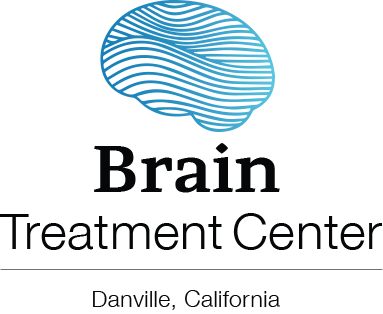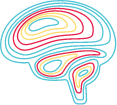
Covid-19 After Care
Many people afflicted with the COVID-19 virus are still suffering after-effects that have greatly affected their quality of health and life. There have also been many unknowns with COVID, and treating the people (sometimes referred to as “long haulers”) who are suffering from after-effects has also left some of the medical community baffled regarding how to provide healing and relief.
According to an article by Johns Hopkins Medical Center, those who have been in the ICU can also suffer from PICS, or Post-Intensive Care Syndrome, which can cause long-term physical, mental, and psychological complications.
It’s not only physical symptoms that can linger. COVID-19 affects everyone differently; some were severely sick, hospitalized, and died. Others experienced only mild symptoms. However, as time marches on, we are learning that regardless of how sick someone got, they can still experience symptoms long after testing negative for the virus. Time and research show that after-effects from COVID-19 mainly affect the brain, heart, lungs, and kidneys.
Regardless of whether you were hospitalized or not, complications can include:
- Shortness of breath
- Muscle weakness
- Fatigue
- Widespread inflammation
- Changes in thinking
- Memory issues
- Severe brain fog
- Cognitive impairment
- Major Depression Disorder
- Insomnia
- Anxiety
- PTSD (post-traumatic stress disorder)
- Substance abuse
- Changes in eating habits
- Suicidal ideation
COVID-19 Has Affected Everyone
Just about everyone has dealt with COVID-19, even if they didn’t actually get sick. The pandemic wreaked havoc on our economy and left many without jobs for long periods of time. Social distancing, isolation, and loss of “normal” life have greatly affected mental health across the world. And sadly, so many people lost loved ones who were sick, and/or had to deal with leaving family members alone to recover in hospitals. A study published by the NIH (National Institute of Health) in June 2020, which was relatively early on, showed that the following mental health conditions were on the rise:
- 31% increase in depression/anxiety
- 13% increase in substance abuse
- 26% increase in “stress-related symptoms”
- 11% increase in thoughts of suicide
These increases from June 2020 were double what they were in our pre-pandemic world. We are now in 2023 and based on how much worse the pandemic became, it’s pretty safe to say that those numbers have likely increased even more.
While we don’t have exact statistics yet, we know that those with pre-existing mental health issues were at greater risk of being affected. We also know that not much emphasis has been placed on the “mental health pandemic” caused either directly or indirectly by COVID-19, such as Depression, Anxiety, PTSD, Insomnia, etc.
Conventional Treatment for COVID-19 Symptoms
Often, a physician will treat COVID-19 symptoms with medication. Some purported alternative remedies include teas, tinctures, essential oils, herbal therapies and colloidal silver; however, there is no scientific evidence that any of these alternative remedies can prevent or cure COVID-19.
MeRT
Here at Brain Treatment Center in Danville, we offer MeRT for COVID-19 after care. This is a unique version of TMS (Transcranial Magnetic Stimulation), with a far more individualized approach to brain modulation. We tailor treatment to the patient’s needs based on frequency, location, and magnetic power used. TMS modulates the brain’s electrical activity by using magnetic fields which pass through the scalp from an electromagnetic coil. This process is non-invasive and painless. Research studies show that this type of treatment is promising for COVID-19 after care.
Most TMS treatments deliver stimulation to one area of the brain at a fixed frequency for all patients. MeRT, however, is more evolved. We carefully analyze a patient’s initial testing as to the brain’s pattern of function and activity. We then use this information to devise a highly personalized protocol for each patient, with the purpose of encouraging improved brain communication. Patients have indicated that they have experienced significant clinical improvements.*
Treatment for COVID-19 symptoms usually lasts four to eight weeks, but can be ongoing. Appointments are 30 to 45 minutes long, Monday through Friday. Generally, the patient will begin to notice improvements during the first week.
While the FDA has cleared the equipment used for MeRT in the treatment of depression that has been resistant to medications, it may also be used off-label for other disorders in the practice of medicine.
Studies have shown altered brain wave oscillations in patients suffering from conditions such as Major Depressive Disorder (MDD), Autism, Traumatic Brain Injury (TBI), Post-Traumatic Stress Disorder (PTSD), Anxiety, and more. MeRT treatment protocol uses a magnetic field to balance and stimulate brain function. The technology involves using sophisticated diagnostics and imaging to customize the treatment for each individual. We then tailor a personalized protocol based on the location, frequency, and amount of power used by the magnet, specific to each person’s unique condition. As a result, MeRT can improve brain communication and synchronization and can lead to significant and long-lasting improvements.
Much of the initial MeRT research has been done by the U.S. Department of Defense for veterans returning from combat. There is an article that was published in Defense One that further explains the DOD’s research and the benefits that MeRT has been shown to have on people suffering from TBI, PTSD, and MDD. Additional studies have been completed in the private sector on other conditions.
MeRT Treatment for COVID-19 After Care: What to Expect
For the initial analysis, you will come in for a comprehensive testing appointment. We will gather your new patient paperwork and then our neuro technician will perform a qEEG and EKG, which will enable us to identify any dysfunction or communication problems in your brain.
This appointment usually takes about 45 minutes. Should you decide to proceed with treatment, we will schedule your assessment period. Your second appointment is also 45 minutes long. During this time, you will meet with a provider for a clinical evaluation. The provider will answer any questions you may have and discuss your applicable treatment plan.
Assessment Period
The assessment period of treatment lasts for two weeks, and will help you, and us, determine how you are responding to treatment. At the end of the assessment period, we will perform a second qEEG to note any changes occurring in your brain.
The first week will be Monday through Friday, and the second week, Monday through Thursday, nine sessions in total, followed by a repeat qEEG to determine progress.
Continuing Treatment
Once the assessment period is complete, and we are seeing progress both clinically and on the qEEG, we will schedule subsequent two-week treatment periods.
The comparison between the initial and second qEEG/clinical evaluation will determine if you are responding. You should also start to experience changes in the way you are feeling during this time. We highly advise a total of six weeks of treatment (which includes the assessment period) for optimal and long-lasting results.
Since each brain is unique, the protocol will be different for each patient as it is based on specific qEEG/EKG data from your brain, and the specific condition being treated. Generally, the results of treatment can last a lifetime, though some people prefer occasional follow-up treatment as needed. But each person is different, and protocols may vary. Your provider will have regularly scheduled follow-up EEGs and meet with you to gauge your progress.
Additional Information
A typical treatment session takes about 45 minutes. You will sit in a chair while the neuro technician administers the treatment near the scalp via a magnetic coil. The gentle magnetic impulses are delivered for six to eight seconds each minute. You may feel a slight sensation while the treatment is occurring, but it is not painful or uncomfortable.
Please note that results and improvements are based on active and strict observation of our regimens. Results may vary based on the individual users and are not guaranteed. Additionally, the results of therapy can vary per individual. In general, the longer the length of MeRT therapy, the longer the changes remain.


